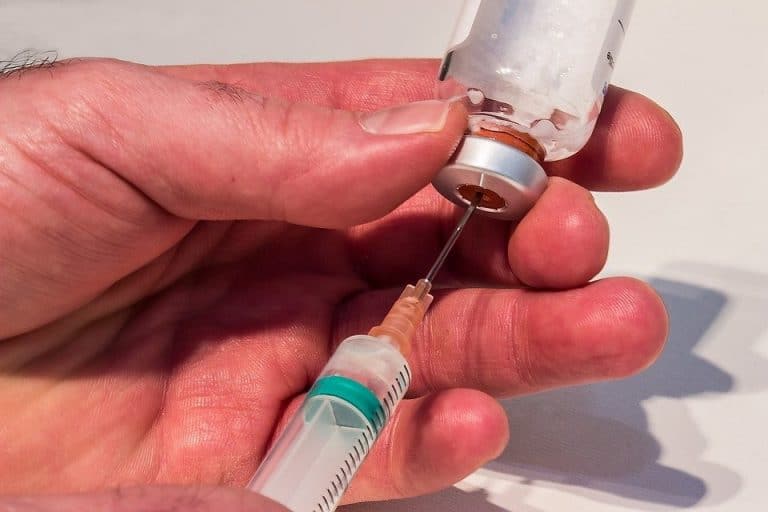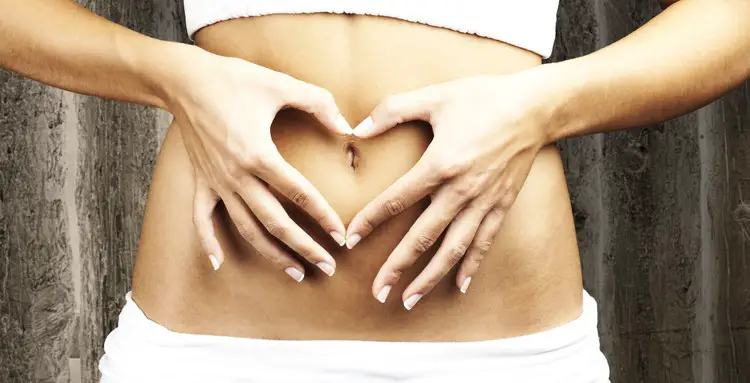Gut health vs Mental health. Are they related?
Are gut health and mental health related? If you asked this question 10 years ago, most people would have wondered if you are being serious! However, thanks to the scientific studies investigating this topic during the past decade, we’ve made intriguing connections between the brain and the gut. Many mental disorders, including general anxiety, schizophrenia, depression, and neurodevelopmental disorders such as autism, and neurodegenerative issues such as dementia and Parkinson’s, have connections to the gut. Hence, if you are looking to achieve a healthy connection between your brain and gut, it’s important to understand how the two interact with each other, and who are the mediators in this complex and complementary relationship.

What is the connection between the gut health and mental health?
The brain can directly affect the gastrointestinal system. For example, when you think about food, the brain signals the stomach to secrete acid. The association between the brain and the gut goes further beyond this example, with gut microbiomes playing a significant role in connecting the two. Gut microbes are the largest population of microorganisms in the human body, made of thousands of different species including bacteria, fungi, virus and archaea, and collectively they can use many nutrients and molecules in ways that our bodies are incapable of doing on their own.
The communication between the brain and gut is bilateral. Our brain uses the central nervous system to regulate the mobility, secretory, and sensory function of the gut (1). And the gut microbiome also signals the brain using neuro-immune and hormonal pathways, which activates sensory neurons of the vagus nerve that then interacts with the brain (2). Gut microbiomes not only impact the brain functions. They also take part in the brain’s physical development (3). The central nervous system, the enteric nervous system (neuro cells in the lining of the gastrointestinal tract), the endocrine, metabolic and immune systems, all work together to ensure that the microbiome-gut-brain axis is properly functioning.
Therefore, it is not surprising that a person’s distressed gastrointestinal tract could be the cause or the result of a distressed brain. For example, individuals with irritable bowel syndrome are more depressed. Those with Parkinson’s disease have higher rates of constipation, and people with autism regularly experience digestive issues (4).

What could harm the gut microbiomes?
Research studies have found several risk factors that play a role in disturbing a healthy microbiome count. The connection starts early in the postnatal stage where gut-brain communication critically affects the trajectory of the brain development. Maternal stress, early antibiotic use, early infection or adversity all negatively impact the gut microbe, leading to damage in the mind and gut that could persist into adulthood (5,6,7).
As we grow older, psychological stress, infection such as gastroenteritis, use of antibiotics, and non-steroidal anti-inflammatory medications, could all influence the gut microbiome.
Somewhat ironic, psychotropic medication, including antidepressants and antipsychotic drugs (all used to treat various mental health issues), may negatively alter the gut microbe (8,9).
What’s the link between the gut health and mental health issues?
- Depression: numerous studies have established a strong link between depressive disorders and the gut microbiome. One study analyzed fecal samples from 46 patients with major depression and reported that there were unusual changes in the composition of their fecal microbiomes. They found that there was a deficiency in the beneficial gut bacteria, or a dominance of possibly harmful ones (10). In another study, they concluded that the dysfunction of microbiota–gut–brain axis is one of the most influential pathological mechanism of depression, and that improving the function of that access could treat depression (13). Various treatment methods that support the gut microbiome and help treat depression are being used, such as introducing psychobiotics/probiotics, diet regulation, and fecal matter transplant.
- Anxiety disorders: Similar studies have reported a significant association between the disturbance of the level of certain healthy gut microbes and the onset or worsening of symptoms of various anxiety disorders, such as general anxiety and panic attacks, PTSD, and OCD. Prescribing probiotics for treatment has shown to help regulate the gut microbiome and help with symptoms (14, 15,16, 17).
- Dementia: Through research, we have associated Gastrointestinal microbiome irregularities with mild cognitive impairments to more advanced conditions, like Alzheimer’s disease. Research suggests that altering gut bacterial communities could become one of the future directions for targeted therapy for these disorders that so far, no cure or treatment have been able to properly tackle (18,19,20).
- Autism: A growing body of research has been investigating autism and the connection to the gut bacteria. A group of scientists hypothesized antibiotic treatments used in young children might be linked to the onset of autism associated behaviors. They suggest this is because of colonization of certain bacteria that produce neurotoxins (21). Despite no direct connection between the use of antibiotics and the development of autism being fully established, many studies over the past 21 years have found that children with autism have an irregular composition of gut bacteria (22,23), and that higher level of certain bacteria is proportionally correlated to the severity of the symptoms (24).
Your Second Brain
Your gut acts as your second brain. The saying ‘you are what you eat’ fully applies to your brain-gut axis of health. Everything you consume from food to medications will either have a neutral, positive, or negative effect on the healthy composition of your gut microbiome, and consequently your mental and cognitive health.
FAQ:
1) Does anxiety start in the gut?
The simple answer is yes, it is possible. While your gut bacteria is not the only factor associated with the onset of anxiety, the gut microbiomes have been strongly linked to most anxiety disorders. Plus, studies have shown that regulating the gut bacteria could have a positive therapeutic effect in individuals diagnosed with anxiety.
2) Can stomach problems cause mental health concerns?
Yes, the stomach is part of the gastrointestinal tract, which is all linked to the brain. The two share a relationship, where distress in one of them would negatively affect the other, and vice versa.
References
- Badawy, A.A-B. (2017). Tryptophan availability for kynurenine pathway metabolism across the life span: Control mechanisms and focus on aging, exercise, diet and nutritional supplements. Neuropharmacology, 112, pp.248–263.
- Kennedy, P.J., Cryan, J.F., Dinan, T.G. and Clarke, G. (2017). Kynurenine pathway metabolism and the microbiota-gut-brain axis. Neuropharmacology, 112, pp.399–412.
- Dinan, T. G., & Cryan, J. F. (2017). Gut instincts: microbiota as a key regulator of brain development, ageing and neurodegeneration. The Journal of physiology, 595(2), 489–503. https://doi.org/10.1113/JP273106
- Hills, R. D., Jr, Pontefract, B. A., Mishcon, H. R., Black, C. A., Sutton, S. C., & Theberge, C. R. (2019). Gut Microbiome: Profound Implications for Diet and Disease. Nutrients, 11(7), 1613. https://doi.org/10.3390/nu11071613
- Lim E. S., Wang D., Holtz L. R. (2016). The bacterial microbiome and virome milestones of infant development. Trends Microbiol. 24 801–810. 10.1016/j.tim.2016.06.001 [PubMed] [CrossRef] [Google Scholar]
- Diaz Heijtz R. (2016). Fetal, neonatal, and infant microbiome: perturbations and subsequent effects on brain development and behavior. Semin. Fetal. Neonatal. Med. 21 410–417. 10.1016/j.siny.2016.04.012 [PubMed] [CrossRef] [Google Scholar]
- Gur T. L., Worly B. L., Bailey M. T. (2015). Stress and the commensal microbiota: importance in parturition and infant neurodevelopment. Front. Psychiatry 6:5. 10.3389/fpsyt.2015.00005 [PMC free article] [PubMed] [CrossRef] [Google Scholar]
- Macedo D, Filho AJMC, Soares de Sousa CN, Quevedo J, Barichello T, Júnior HVN, Freitas de Lucena D(2017)Antidepressants, antimicrobials or both? Gut microbiota dysbiosis in depression and possible implications of the antimicrobial effects of antidepressant drugs for antidepressant effectiveness. J Affect Disord 208:22–32. [PubMed] [Google Scholar]
- Davey KJ, O’Mahony SM, Schellekens H, O’Sullivan O, Bienenstock J, Cotter PD, Dinan TG, Cryan JF(2012)Gender-dependent consequences of chronic olanzapine in the rat: effects on body weight, inflammatory, metabolic and microbiota parameters. Psychopharmacology (Berl) 221:155–169. [PubMed] [Google Scholar]
- Zheng, P., Zeng, B., Zhou, C., Liu, M., Fang, Z., Xu, X., Zeng, L., Chen, J., Fan, S., Du, X., Zhang, X., Yang, D., Yang, Y., Meng, H., Li, W., Melgiri, N. D., Licinio, J., Wei, H., & Xie, P. (2016). Gut microbiome remodeling induces depressive-like behaviors through a pathway mediated by the host’s metabolism. Molecular psychiatry, 21(6), 786–796. https://doi.org/10.1038/mp.2016.44
- Kelly, J. R., Borre, Y., O’ Brien, C., Patterson, E., El Aidy, S., Deane, J., Kennedy, P. J., Beers, S., Scott, K., Moloney, G., Hoban, A. E., Scott, L., Fitzgerald, P., Ross, P., Stanton, C., Clarke, G., Cryan, J. F., & Dinan, T. G. (2016). Transferring the blues: Depression-associated gut microbiota induces neurobehavioural changes in the rat. Journal of psychiatric research, 82, 109–118. https://doi.org/10.1016/j.jpsychires.2016.07.019
- Jiang, H., Ling, Z., Zhang, Y., Mao, H., Ma, Z., Yin, Y., Wang, W., Tang, W., Tan, Z., Shi, J., Li, L., & Ruan, B. (2015). Altered fecal microbiota composition in patients with major depressive disorder. Brain, behavior, and immunity, 48, 186–194. https://doi.org/10.1016/j.bbi.2015.03.016
- Schnorr, S. L., & Bachner, H. A. (2016). Integrative Therapies in Anxiety Treatment with Special Emphasis on the Gut Microbiome. The Yale journal of biology and medicine, 89(3), 397–422.
- Leclercq, S., Forsythe, P., & Bienenstock, J. (2016). Posttraumatic Stress Disorder: Does the Gut Microbiome Hold the Key?. Canadian journal of psychiatry. Revue canadienne de psychiatrie, 61(4), 204–213. https://doi.org/10.1177/0706743716635535
- Hemmings, S., Malan-Müller, S., van den Heuvel, L. L., Demmitt, B. A., Stanislawski, M. A., Smith, D. G., Bohr, A. D., Stamper, C. E., Hyde, E. R., Morton, J. T., Marotz, C. A., Siebler, P. H., Braspenning, M., Van Criekinge, W., Hoisington, A. J., Brenner, L. A., Postolache, T. T., McQueen, M. B., Krauter, K. S., Knight, R., … Lowry, C. A. (2017). The Microbiome in Posttraumatic Stress Disorder and Trauma-Exposed Controls: An Exploratory Study. Psychosomatic medicine, 79(8), 936–946. https://doi.org/10.1097/PSY.0000000000000512
- Yang B, Wei J, Ju P, et al. (2019). Effects of regulating intestinal microbiota on anxiety symptoms: A systematic review. General Psychiatry, 32:e100056. doi: 10.1136/gpsych-2019-100056
- Saji, N., Niida, S., Murotani, K., Hisada, T., Tsuduki, T., Sugimoto, T., Kimura, A., Toba, K., & Sakurai, T. (2019). Analysis of the relationship between the gut microbiome and dementia: a cross-sectional study conducted in Japan. Scientific reports, 9(1), 1008. https://doi.org/10.1038/s41598-018-38218-7
- Vogt, N. M., Kerby, R. L., Dill-McFarland, K. A., Harding, S. J., Merluzzi, A. P., Johnson, S. C., Carlsson, C. M., Asthana, S., Zetterberg, H., Blennow, K., Bendlin, B. B., & Rey, F. E. (2017). Gut microbiome alterations in Alzheimer’s disease. Scientific reports, 7(1), 13537. https://doi.org/10.1038/s41598-017-13601-y
- Saji, N., Murotani, K., Hisada, T. et al. (2019). The relationship between the gut microbiome and mild cognitive impairment in patients without dementia: a cross-sectional study conducted in Japan. Sci Rep 9, 19227. https://doi.org/10.1038/s41598-019-55851-y
- Sandler, R. H., Finegold, S. M., Bolte, E. R., Buchanan, C. P., Maxwell, A. P., Väisänen, M. L., Nelson, M. N., & Wexler, H. M. (2000). Short-term benefit from oral vancomycin treatment of regressive-onset autism. Journal of child neurology, 15(7), 429–435. https://doi.org/10.1177/088307380001500701
- Xu, M., Xu, X., Li, J., & Li, F. (2019). Association Between Gut Microbiota and Autism Spectrum Disorder: A Systematic Review and Meta-Analysis. Frontiers in psychiatry, 10, 473. https://doi.org/10.3389/fpsyt.2019.00473
- American Society for Microbiology. (2021, April 6). Gut microbiome plays role in autism, study finds. ScienceDaily. Retrieved May 26, 2021 from www.sciencedaily.com/releases/2021/04/210406132000.htm
- Finegold, S. M., Downes, J., & Summanen, P. H. (2012). Microbiology of regressive autism. Anaerobe, 18(2), 260–262. https://doi.org/10.1016/j.anaerobe.2011.12.018
Disclaimer: While our team of medical expert writers makes every effort to convey the correct, relevant, and most up-to-date information, you should never disregard advice given to you by your medical practitioner or delay seeking medical assistance because of something you have read on Gutsify or received in correspondence from Gutsify. Please refer to our Terms and Conditions.







